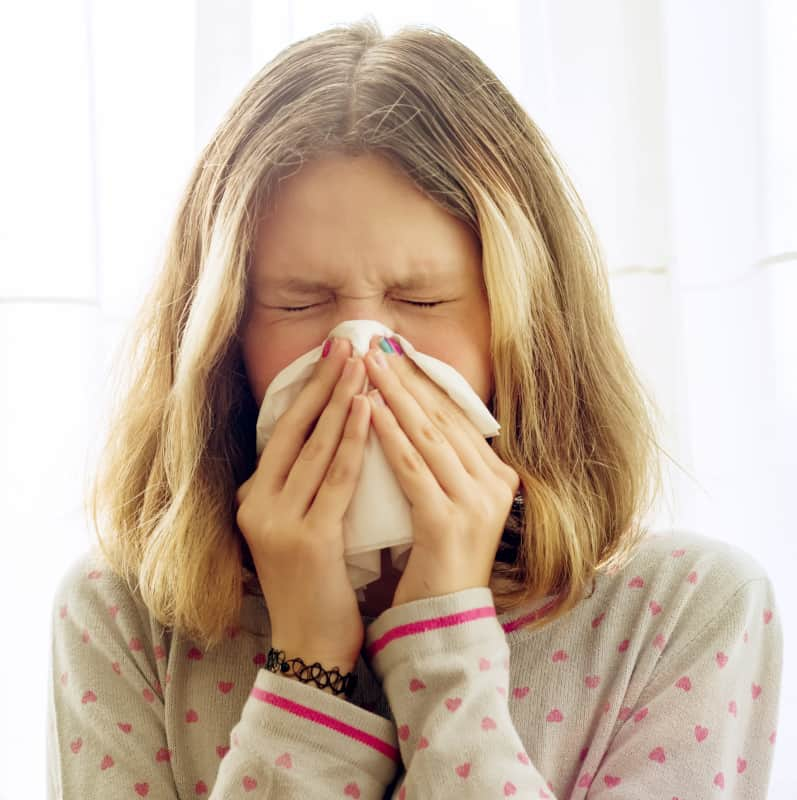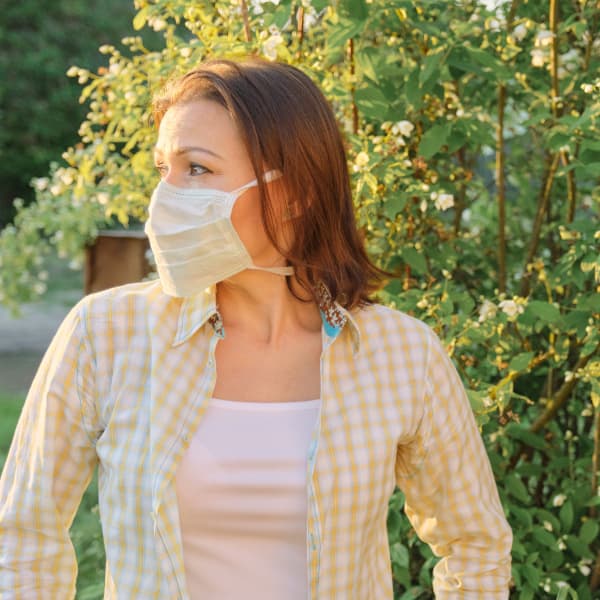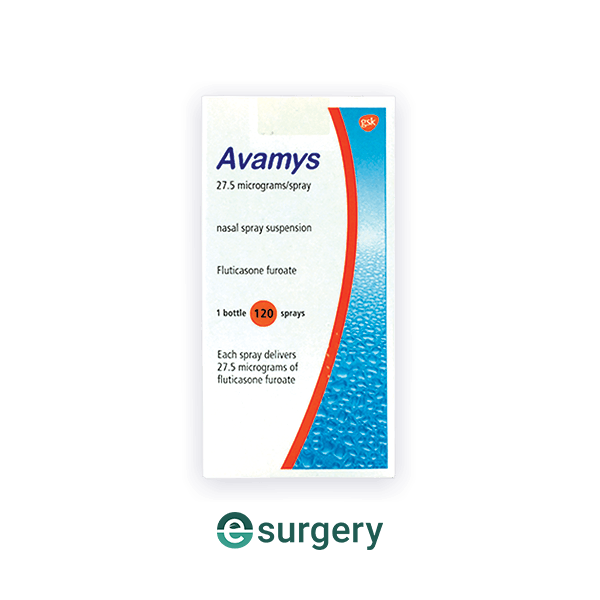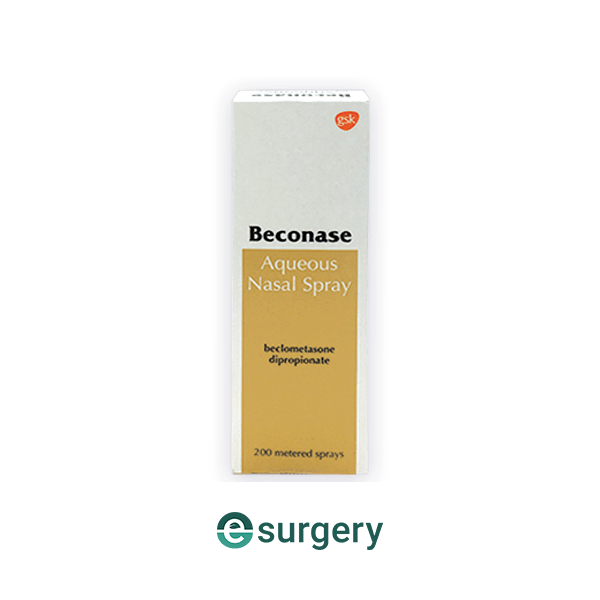
Are you one of the many people who suffer from hay fever every year? If so, you’ll want to know when the season starts so that you can start taking precautions. So, when does hay fever season start in the UK?
In this post, we’ll tell you everything you need to know about the UK hay fever season. Keep reading to find out more!
What is hay fever?
Hay fever, also known as allergic rhinitis, is a condition that causes symptoms like sneezing, a runny nose, and itchy eyes.
It is an allergy to pollen, which is a fine powder released by plants during their reproductive cycle. When this pollen is inhaled, it can trigger an immune response in people who are susceptible to hay fever, causing the symptoms described above.
Hay fever symptoms can vary from person to person, but they typically include:
- Sneezing and a runny or blocked nose (allergic rhinitis)
- Itchy, red or watery eyes (conjunctivitis)
- Itchy throat, mouth, nose, and ears
- Coughing
- Difficulty sleeping
- Fatigue (tiredness)
- Headache
- Loss of smell
People with hay fever may experience symptoms such as:
- Chest tightness
- Breath shortness
- Wheezing and coughing
Hay fever can last for weeks. It depends on the exposure to the triggers.
When does hay fever season start in the UK?
In the UK, hay fever season generally starts in late March or early April and lasts until September. However, the exact timing depends on the weather conditions and the type of pollen that you are allergic to.
What triggers hay fever?
Hay fever can be triggered by:
- Pollen
- Perfume
- Mould or fungi
- Dust mites
- Cigarette smoke
- Pet fur
There are different types of pollen that can trigger hay fever, and these vary depending on the time of year:
Tree Pollen: Tree pollen is typically released in the early spring months and can be found in high concentrations in areas with lots of trees, such as woods or parks. The most common tree pollens in the UK are from birch, alder, and oak trees.
Grass Pollen: Grass pollen is more common in the late spring and summer months and can be found in areas with lots of grass, such as fields or lawns.
Weed Pollen: Weed pollen is typically released in the summer months and can be found in areas with lots of weeds, such as hedgerows or riverbanks. The most common weed pollens in the UK are from nettles, docks, and plantains.

How can I treat hay fever?
There are many different options for treating hay fever. These include prescription medications and home remedies.
Prescription medications
For managing your symptoms, your GP may prescribe medications, such as:
Fexofenadine Tablets: This medication belongs to a class of drugs known as antihistamines. It works by blocking the action of histamine, a substance produced by the body in response to an allergen. This decreases the symptoms of hay fever and helps people to feel more comfortable.
Avamys Nasal Spray: Avamys contains an active ingredient called fluticasone, which helps to reduce swelling and inflammation. Additionally, Avamys can help to prevent the release of histamine, a substance that triggers hay fever symptoms.
Beconase Nasal Spray: Beconase aqueous nasal spray is a medication that is used to treat hay fever and other allergies. The active ingredient in the spray is beclomethasone dipropionate, which is a steroid. The spray works by reducing inflammation in the nose and thereby relieving symptoms such as sneezing, runny nose, and itchiness.
Sodium Cromoglicate 2% Eye Drops: The active ingredient in the eye drops is cromoglicic acid, which works by blocking the release of histamine from immune cells. Histamine is responsible for many of the symptoms associated with hay fever, such as itchiness and redness of the eyes.
Home Remedies
There are many home remedies that can help relieve the symptoms of hay fever. Some of the most effective include:
- Salt Water: Through nasal douching, you can sniff a small amount of solution through one nostril at a time, till the irritation goes away.
- Vaseline: Apply it inside your nostrils or around your eyes, as required.
- Local Honey: Consume some honey regularly.
- Herbal Tea: A cup of herbal tea daily would protect the human body from infections.
- Vitamin C: Vitamin C contains anti-allergy properties, thus can help in fighting the symptoms of hay fever.
- Capsaicin: It can aid in reducing sinuses.
Tips to avoid hay fever
You can also reduce your chances of developing hay fever through the following tips (1):
- Taking a shower or bath before bedtime to rinse off pollen that may have accumulated during the day.
- Wearing a dust mask when outdoors to avoid breathing in pollen particles.
- Keeping windows and doors shut at home to prevent pollen from coming inside.
- Vacuuming regularly to remove pollen from carpets and upholstery.
- Using an air purifier to filter out pollen particles from the air.
- Avoid outdoor activities during peak pollen hours (usually midday).

Following these simple tips can help make hay fever season more bearable. If allergies are severe, however, it’s important to see a doctor for proper diagnosis and treatment.
Always speak to your GP before starting any new medication, and make sure to check for any potential drug interactions.
Can I avail hay fever medications online?
You can purchase the above-discussed hay fever medications from e-Surgery, a reputed and registered online pharmacy.
Sources
- Hay fever – NHS | NHS
- Hay Fever Symptoms: Triggers, Complications, and Treatment | Healthline
- Bless You! 6 Hay Fever Home Remedies To Help This Spring | E-Surgery Health Hub
Further Reading
- The Pollen Calendar | Kleenex
- Surviving hay fever: A guide for sufferers | Met Office
- Winter Hay Fever | Asthma UK












